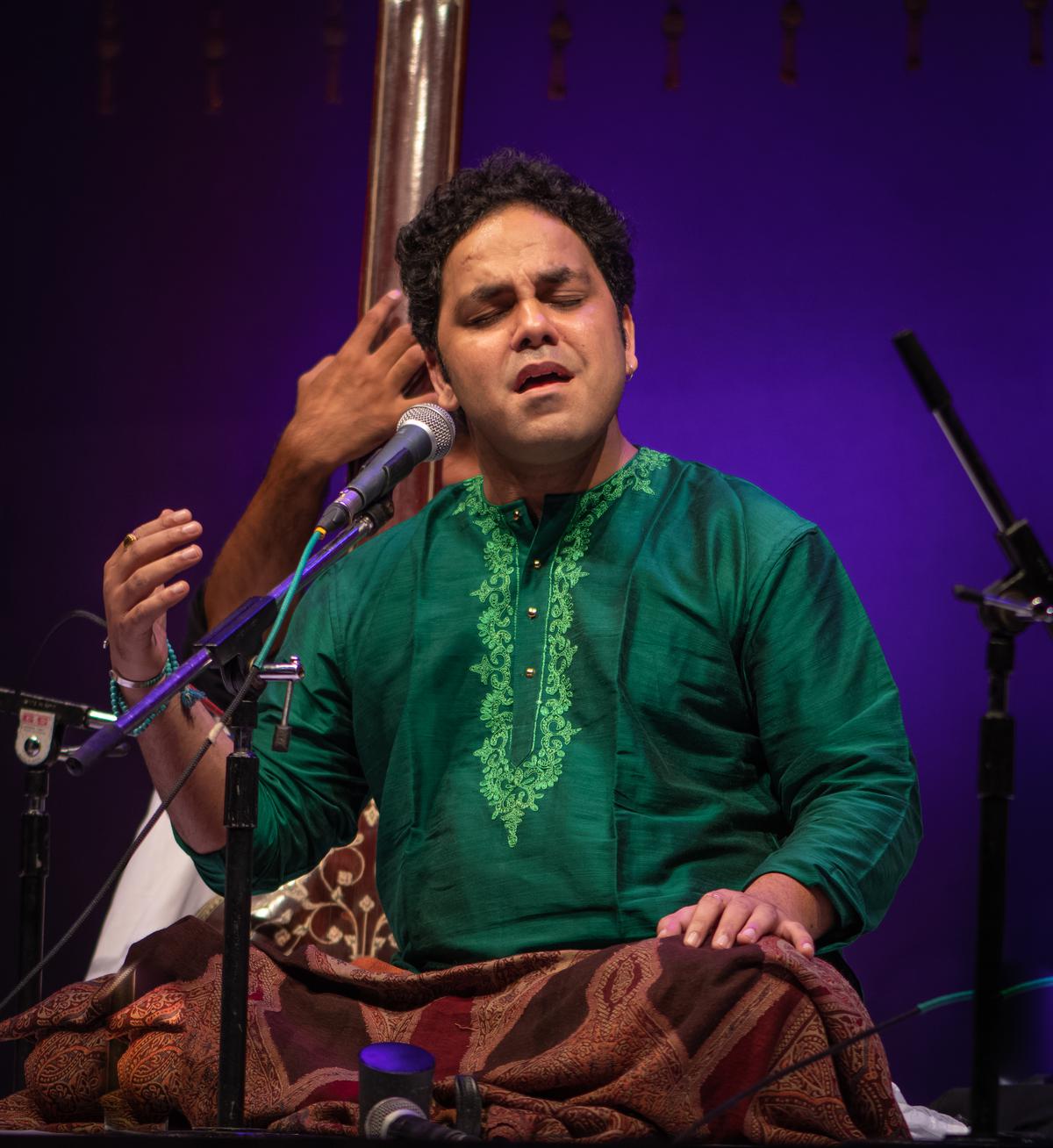Tenth edition of Swar Samrat Utsav in New Delhi brings together Gharana and Young Artists
10th edition of Swar Samrat Utsav in New Delhi brings together Gharana and Young Artists
The 100th birth anniversary of Ustad Ali Akbar Khan is being celebrated across the world. Earlier this week in Delhi, the two-day festival focused entirely on the younger generation. It opened with a stellar debut with 26-year-old Gandhar Deshpande at her first classical concert in Delhi. Ram Deshpande, a disciple of Pt., Gandhara’s singing style is an amalgamation of styles, interestingly presented with his own novel musical ideas. In one stage, he used an instrumental technique – singing a few notes of the ‘Mukhara’, then improvising, then repeating the original tune. It created a wonderful feeling of being remembered, in order to most effectively engage its audience. In addition, he introduced unusual melody, which he shared after the concert, a strategy he would like to follow. He said, “Everyone sings the same simple raga; I like to take the challenge of singing ragas that have become rare.”
Starting with the favorite ‘Jod Raag’ of the Jaipur Atrauli Gharana, Raga Lalita Gauri, Gandhar with her confident demeanor caught one off right from the start. His sense of proportion in the concert presentation put many veterans to shame; There will literally be a time when he will move on, musically speaking. The perfection of his voice in high pitches was commendable.
The second raga was not heard by this author Raga Deepak Kedar, although Gandhara shared that it was sung in Maharashtra until the 1950s. Interestingly, Gandhara felt that the use of the name Deepak does not refer to the raga; As the prevalent raga is known as Deepak, some regions have a different note structure, which was not incorporated by his raga Deepak Kedar. However, in a more ancient tradition, Raga Deepak has notes of Kalyan, and was one of the 6 main ragas from which all other ragas developed, so Gandhara’s Deepak Kedar may have been an older association of these two ragas. (Incidentally, Raga Deepak was deliberately extirpated by the master of the time, in the mid-19th century, as its effects were said to be harmful.) Certainly as a singer, Gandhara was particularly The tabla was accompanied by a Mumbai-based youth. Ishaan Ghosh on Harmonium and Dr. Vinay Mishra of Delhi.
Kaushik Mukherjee plays in the lineage of Ustad Ali Akbar Khan on the sarod; He is a disciple of Pandit Tejendra Narayan Majumdar. His melody Jhinjhoti was completed; In turn, the ‘Laya’ operated, with the flashes of ‘Bolkari’ (stroke work). Hope to hear more about this worthy musician; He has an unusual feel for music. He was accompanied by Debjit Patitundi, a worthy disciple of late Pandit Shubhankar Banerjee, on the tabla.
Yashwant Vaishnav. , photo credit: Subhdeep Dey
On the second day, 28-year-old Yashwant Vaishnav’s Tabla Solo of Punjab Gharana, the Tabla Wonder Kid, lit up the show. With Nilay Salve’s harmonium, Yashwant’s rendition in ‘Teen Taal’ was simply breathtaking for the clarity of his strokes and accuracy. Perhaps more than an hour later, the young maestro received a spontaneous standing ovation. Farrukhabad, (Ustad Amir Hussain Khan) Lucknow, (Ustad Wajid Hussain) Ajra (Ustad Habibuddin Khan) as well as his gharana – Guru Pt Yogesh Samsi, Pt Sushil praised the diverse repertoire he played. Kumar Jain, Ustad Alla Rakha and Ustad Zakir Hussain.
The Mohan Brothers, Sitar player Lakshya and Sarod player Ayush played the seasonal raga Miyan ki Malhar, followed by Raga Manjh Khamach. Always interesting to listen to a ‘jugalbandi’, the two were perfectly in sync with the music. He was accompanied by a very comfortable tabla ‘Sangat’ by Ishan Ghosh, who himself plays the sitar.

Arshad Ali Khan | photo credit: Subhdeep Dey
Arshad Ali Khan, the maestro of the Kirana gharana, now hails from Kolkata, but was originally from Delhi. Creating a wonderful ‘Mahal’, he sang the seasonal raga Megh, Sombre, deliberate and majestic. In his ‘Drut Ek Taal Bandish’, he stunned his audience with the abundance of distinctly pronounced ‘Taans’, one that he executed effectively in both the octaves. His tilak orgasm was a blissful, true blue, raga-jnani. The concluding raga Gaur Malhar featured an unusual composition where the restless, tormented ‘Tappa’ style portion of ‘Antara’ used the apt song ‘Jiya Ghabaraye’ most effectively. He was accompanied by Ustad Murad Ali Khan on Sarangi, Debjit on Tabla. Indeed this concert was a fitting end to a wonderful celebration.